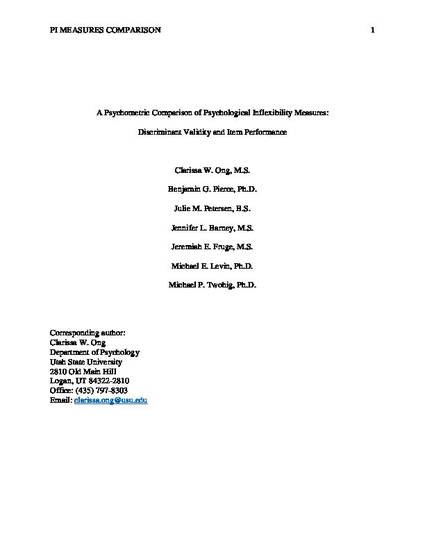
Psychological inflexibility is a rigid behavioral pattern that interferes with engagement in personally meaningful activities; it is the hypothesized root of suffering in acceptance and commitment therapy (ACT). Thus, the quality of its measurement affects the research, theory, and practice of ACT. The current study aimed to evaluate the discriminant validity and item performance of four measures of psychological inflexibility: the Acceptance and Action Questionnaire—II (AAQ-II), a revised version of the AAC-II (AAQ-3), the Brief Experiential Avoidance Questionnaire (BEAQ), and the Comprehensive assessment of Acceptance and Commitment Therapy processes (CompACT). We analyzed data from community (n = 253), student (n = 261), and treatment-seeking samples (n = 140) using exploratory factor analysis and multigroup graded-response models. The CompACT had the strongest discriminant validity followed by the AAQ-3, whereas items in the CompACT Behavioral Awareness and Valued Action subscales performed most consistently across groups. No single measure emerged as clearly superior to others; rather, appropriate selection of measures depends on the goals and context of assessment. Scientific and clinical implications are discussed.
